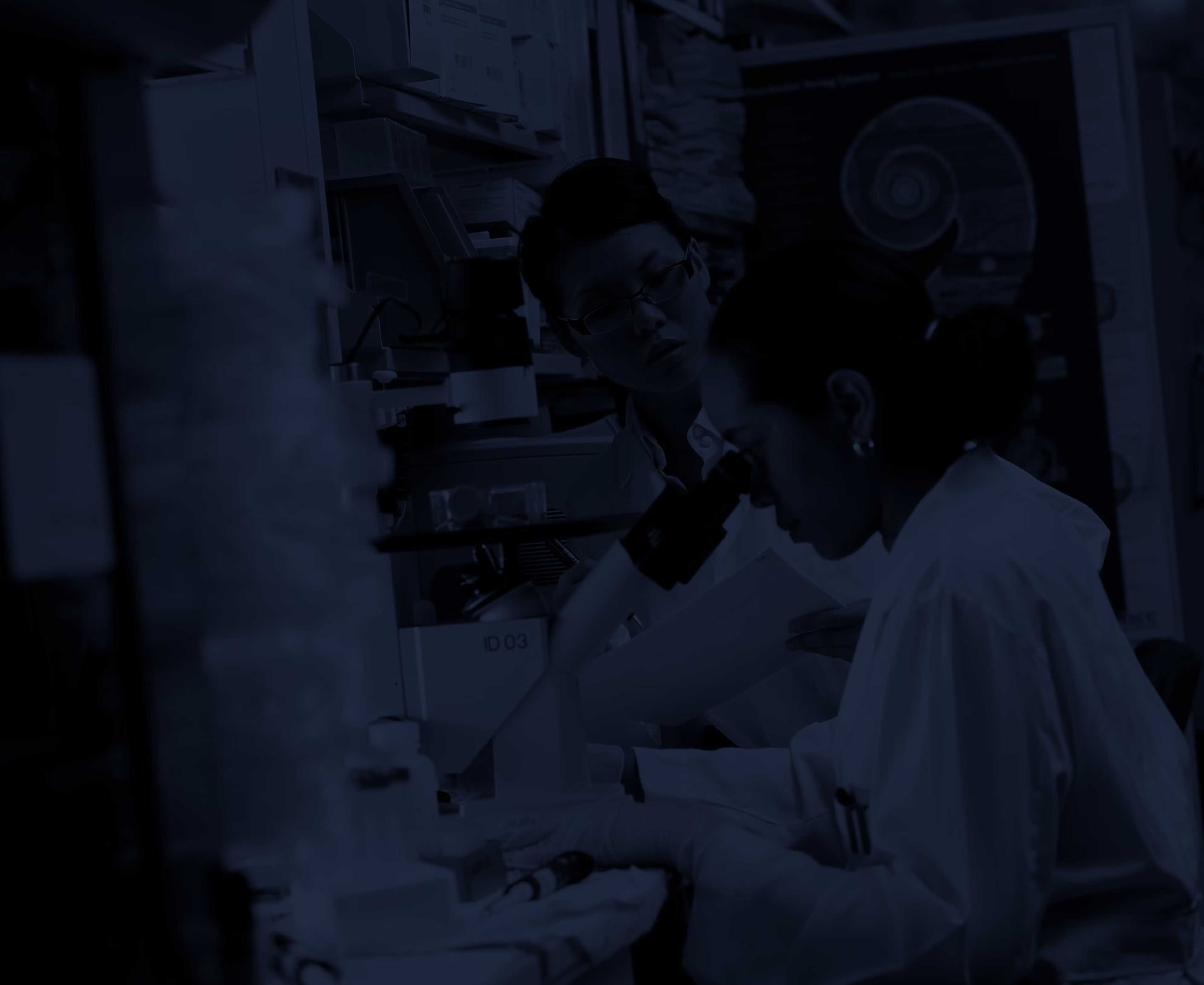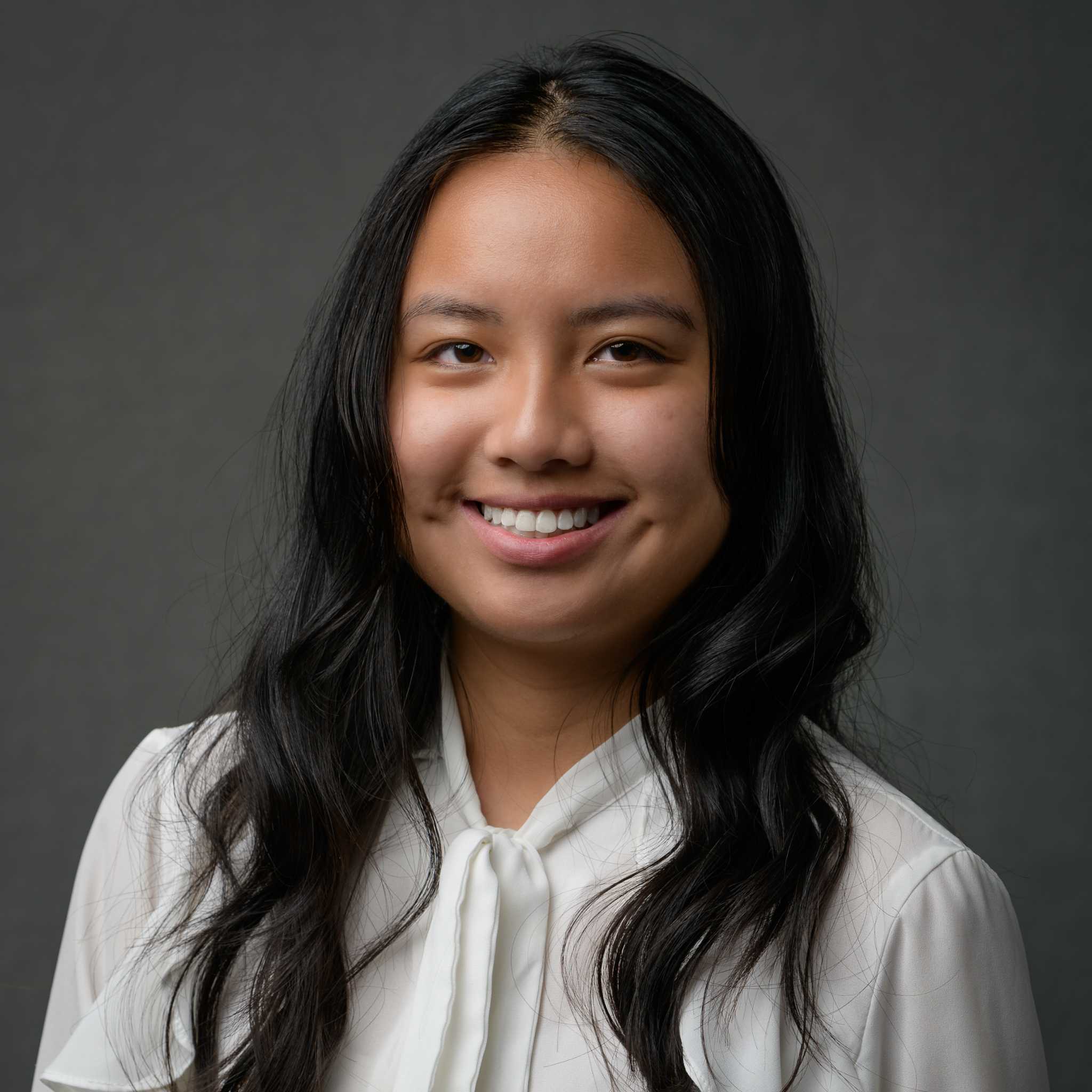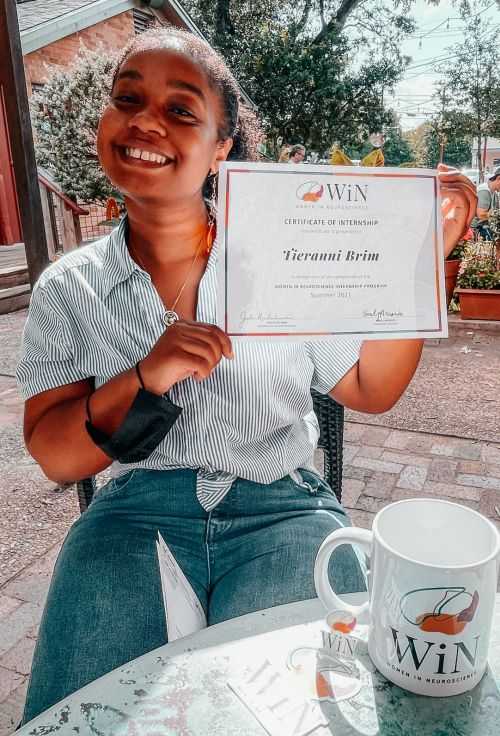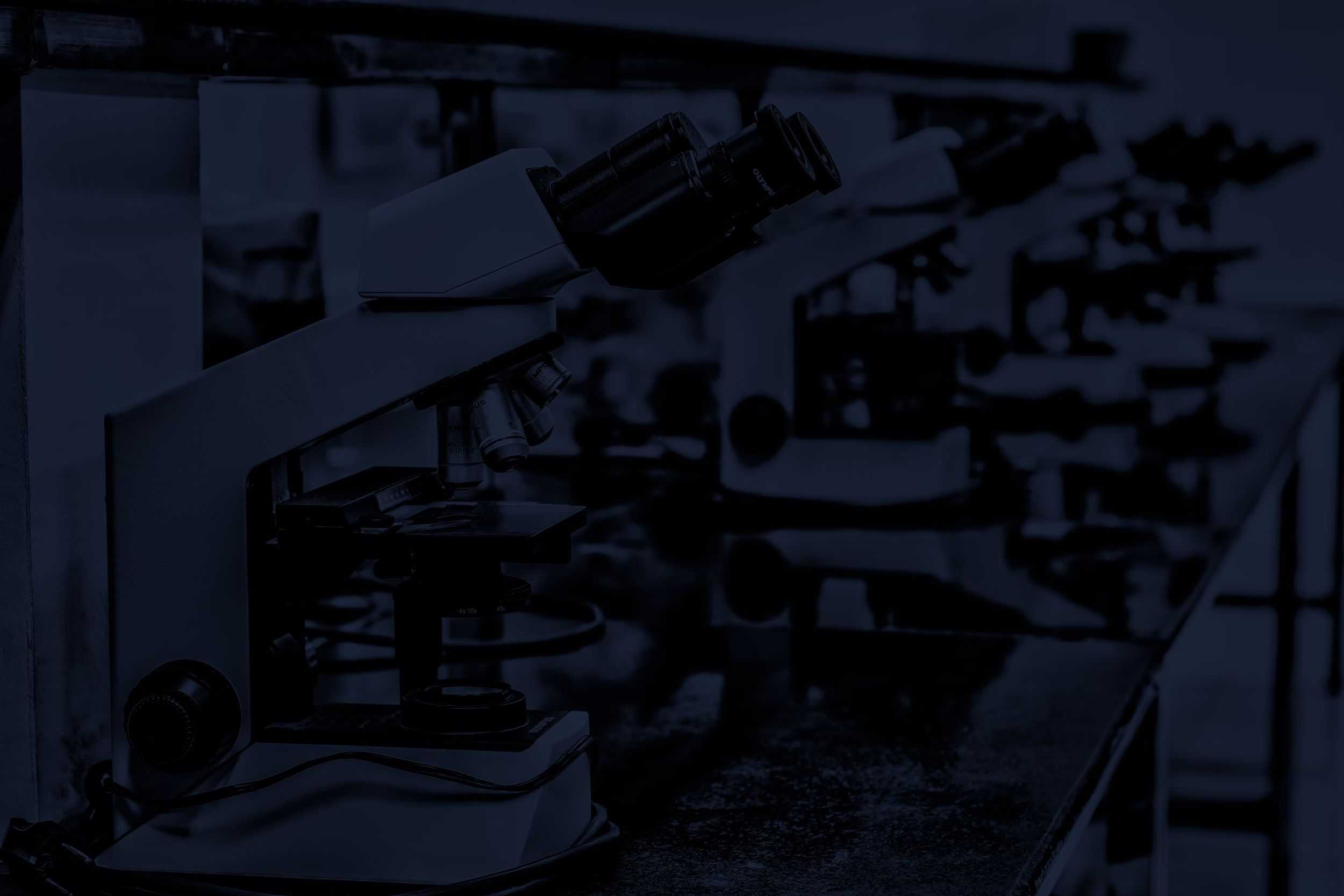
Impact Stories
We strive to give our interns truly transformative experiences, both in terms of acquired technical skills and professional development. Alongside some of the brightest minds in the neuroscience field, each participant contributes to their projects in meaningful ways and obtains an invaluable understanding of what life is like as a practicing researcher. But don't just take our word for it! See how our former WiNterns enjoyed the process.
Breaking Barriers, Building Futures
Read the inspiring stories of how our WiNterns shattered barriers and unleashed their full potential as scientists.

- Name
- Sydney Tu
- WiNternship Program
- 2023
- Title
- Junior at UT Austin
When I shared the news of my acceptance into the University of Texas at Austin (UT) with my parents, their elation was palpable. Their excitement only heightened when I presented a YouTube video, which showcased the prestigious reputation of UT, offering a glimpse into the remarkable journey that awaited me the following fall.
While they were proud of me for pursuing my dream of going to medical school, they were unfamiliar with the processes of selecting the right classes or guiding me toward resources that would help keep me on track for medical school. As a first-generation college student, I found it difficult to navigate the complexities of higher education.
When I first heard about Women in Neuroscience’s (WiN) program from my freshman year tutor, it sounded exactly like the support and mentorship that I needed. WiN’s program offers young women an 8-week paid internship, complete with lab research experience, mentorship and a speaker series from neuroscientists across the country.
As a WiNtern, I was paired with a UT faculty member, Dr. Caitlin Orsini, in the Psychology and Neuroscience Department. I spent an entire summer working in Dr. Orsini's lab, contributing to ongoing research. My project focused on motivation and the role of dopamine, a neurotransmitter, in influencing motivation. While the work itself was indeed fascinating, I noticed something distinct in this lab compared to my previous experiences in others. For the first time, my lab consisted of all women.
In the past, I’ve noticed many of the people surrounding me in research labs in this and other STEM fields have been white men. The underrepresentation of women and people of color in scientific fields remains a significant challenge. While I haven't faced much discrimination personally, I've seen some individuals encounter biased comments and discrimination in their academic and professional journeys. This can be extremely discouraging to stay in the field.
The presence of other resilient women in this lab, who had encountered similar obstacles in their quest for success, served as a powerful testament that progress was being made. Programs like WiN play a pivotal role in breaking down barriers and fostering opportunities for aspiring women in neuroscience. This shift towards greater representation is instrumental in expanding the diverse perspectives and life experiences brought to the decision-making table, ultimately enhancing the potential for innovative, holistic approaches in addressing neurodegenerative diseases and neurological disorders.
Through the unwavering support and guidance of WiN and the lessons learned on my personal journey, I was inspired to pay it forward. Today, I proudly serve as a mentor in my Scholars Program at UT Austin, assisting incoming first-year students in navigating the challenging transition from high school to college. My mission is to empower and support underrepresented STEM students, ensuring they can overcome obstacles and confidently pursue their dreams. In doing so, I hope to contribute to a future where diversity and inclusion flourish in the scientific community, paving the way for groundbreaking discoveries and novel solutions to some of the most pressing neurological challenges of our time.
“As I had very little experience in a lab setting, the beginning of the internship was difficult for me, but it was an exciting time to be exposed to all types of lab techniques. My teammates and I got to observe brain slicing experiments, surgeries on the brains of mice, and even got to learn how to handle mice.
I am extremely grateful for being able to observe amazing experiments like these that contribute to research and lead to ground-breaking discoveries. It made me feel more motivated to pursue a path in research.”

One of my favorite things about being a WiNtern was that no two days were exactly the same. Dr. Henry made sure that I was exposed to new projects, information, and experiences throughout the summer. I had access and opportunity to meet and interact with many people in the lab. I love that I was given both structure and the freedom to branch out into the areas that interested me.

Conducting neuroscience research with WiN allowed me to build up the scientific analysis skills and experience I needed to be accepted into medical school and to continue doing research at a graduate student level.
In 2021, I finished my pre-clinical year of med school and completed my pediatrics, ob/gyn and surgery rotations in the middle of the pandemic. Along with this, I conducted research in ophthalmology and am hoping to get some papers published soon. I'll be finishing up my rotational year this year and hope to do an MPH next year.

Interested in becoming a WiNtern
or serving as a faculty host?
If you'd like to participate, we'd love to hear from you. To get started, please reach out using one of the paths below.
Become a WiNsider!
Join WiN's ever-growing community of neuroscience enthusiasts and be the first to know about our latest initiatives, events, and program updates. Subscribe and help empower tomorrow's innovators, today.
We care about the protection of your data. Read our Privacy Policy.